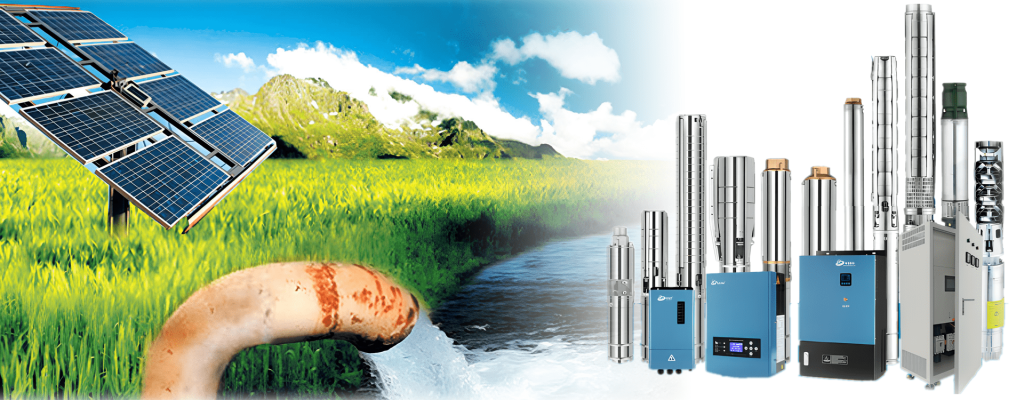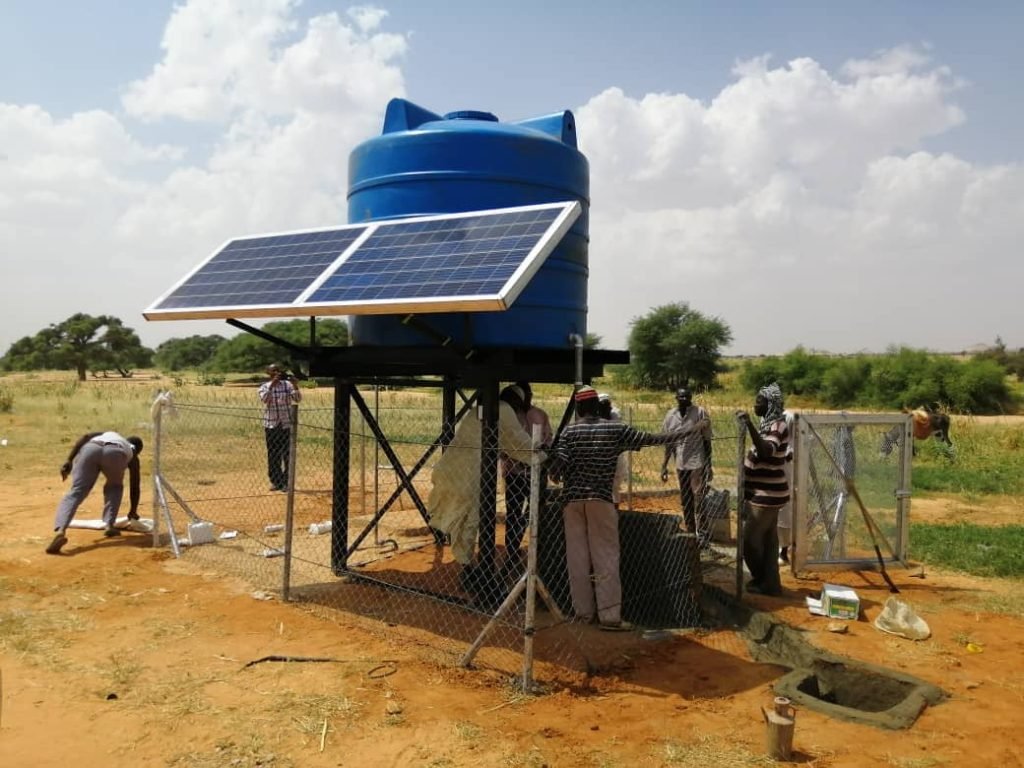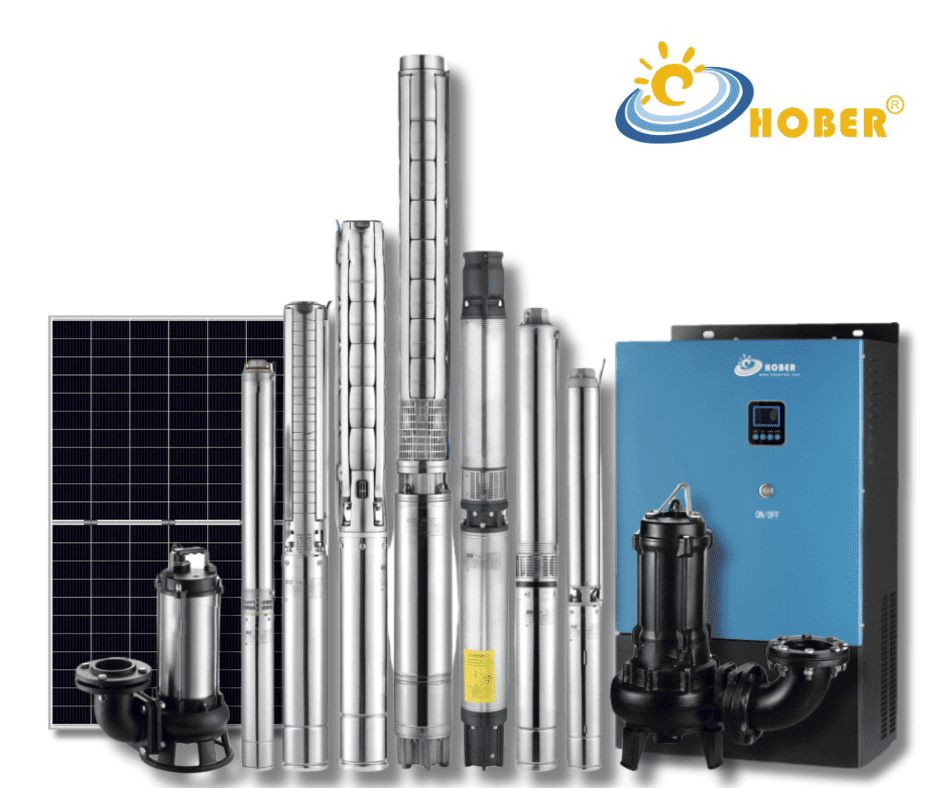Introduction
Choosing the right solar pump for your needs can be challenging. With so many options available, it’s easy to feel overwhelmed. This article will help you understand the differences between AC and DC solar pumps and determine which is best suited for your specific requirements.

Which Solar Pump is Better, AC or DC?

While DC pump is more efficient than AC pump and required less solar panels to operate, it is difficult to maintain in remote areas as it needs specialized service centers, and you will not be able to run for emergency in night time, also its price is higher than AC pump. DC solar pumps are ideal for smaller applications where efficiency and lower power consumption are crucial. They are more straightforward because DC power is routed directly from the solar panels. In contrast, AC solar pumps require an inverter to convert DC power from the solar panels into AC power, leading to some efficiency loss. However, AC pumps are generally more robust and can handle larger volumes of water, making them suitable for bigger applications.

Are DC Pumps More Efficient than AC Pumps?
DC pumps are also known for their energy efficiency. They generally consume less energy than AC pumps while maintaining high performance. This energy efficiency can help reduce long-term operating costs and minimize environmental impact. DC pumps use less solar panels, which makes them more cost-effective and environmentally friendly. The direct use of DC power means there is no need for energy conversion, reducing losses and increasing overall system efficiency.
What are the Advantages of DC Pump over AC Pump?
Efficiency/Maintenance: These motors are highly efficient at controlling the flow of water. DC pumps have fewer electrical components in comparison to their AC counterparts, making them less vulnerable to electrical surges/failures. DC pumps are compact, easier to install, and typically require less maintenance due to fewer moving parts and simpler electronic components. Their design also makes them less susceptible to damage from power surges, further enhancing their reliability and longevity.
What is the Difference Between AC and DC Pool Pumps?
A: DC-powered pumps run on direct current, which means the solar power (which is also direct current) does not need to be converted to AC-power. DC-powered pumps are generally 20-40% more efficient than AC-powered pumps. There are also pumps which can use both DC as well as AC power as their input. This dual capability provides flexibility in installation and operation, allowing users to switch between power sources as needed. AC pumps, however, are often preferred for their ability to handle larger capacities and higher pressure requirements, making them suitable for more demanding applications.
Difference Between DC Pump and AC Pump
DC pumps are designed for lower power applications and excel in energy efficiency, making them ideal for small to medium-sized installations. They operate quietly, have a longer lifespan, and are easier to maintain. AC pumps, on the other hand, are more powerful and can handle higher capacities, making them suitable for large-scale installations. They are also more readily available and generally cheaper than DC pumps, despite the higher initial setup costs due to the need for inverters.
AC vs DC Pump Aquarium
In aquarium applications, DC pumps are preferred for their quiet operation and precise control over water flow. They are energy-efficient and can be easily adjusted to maintain optimal conditions for aquatic life. AC pumps are less commonly used in aquariums due to their higher noise levels and less precise control, but they can be beneficial in larger setups where high flow rates are required.
AC/DC Submersible Pump
Submersible pumps are available in both AC and DC versions, each with its own advantages. DC submersible pumps are more efficient and better suited for off-grid solar applications, providing reliable water pumping with minimal energy consumption. AC submersible pumps, however, are more powerful and capable of pumping water from greater depths and over longer distances, making them ideal for larger agricultural or industrial applications.
DC Water Pump Solar
DC solar water pumps are specifically designed to operate directly from solar panels, making them highly efficient and suitable for remote locations without access to the grid. They are easy to install and maintain, with fewer components required compared to AC systems. These pumps are perfect for small to medium-sized water pumping needs, such as irrigation, livestock watering, and household water supply.
Solar Pump Calculation
Calculating the right size and type of solar pump for your needs involves considering several factors, including the water source, required flow rate, total head (height water needs to be lifted), and available solar energy. DC pumps are generally more efficient and require fewer solar panels, making them more cost-effective for smaller applications. AC pumps, while needing more panels and an inverter, are better suited for larger systems with higher flow and pressure requirements.
What Size Solar Pump Do I Need?
The size of the solar pump you need depends on your specific water requirements and site conditions. For small to medium applications (less than 3HP), DC pumps are typically more efficient and cost-effective. For larger applications (greater than 3HP), AC pumps are more suitable due to their ability to handle higher capacities and pressures. It is important to accurately assess your water needs and site conditions to choose the right pump size and type.
Solar Well Pump Conversion Kit
Solar well pump conversion kits allow you to convert existing AC well pumps to solar-powered systems. These kits typically include solar panels, an inverter, and other necessary components to enable the existing pump to operate on solar power. This can be a cost-effective way to transition to renewable energy without replacing the entire pump system. Conversion kits are especially useful for larger installations where AC pumps are already in use and replacing them with DC pumps would be impractical.
Solar Motor
Solar motors are designed to run directly from solar power, offering high efficiency and reliability. They are commonly used in DC solar pumps, providing a direct connection to solar panels without the need for inverters. Solar motors are durable, easy to maintain, and ideal for off-grid applications where traditional power sources are unavailable. Their high efficiency makes them a key component in maximizing the performance of solar pumping systems.
Summary
In conclusion, selecting between AC and DC solar pumps depends on your specific requirements. DC pumps are more efficient and suitable for smaller applications, while AC pumps are powerful and better for larger tasks. Understanding these differences will help you make the best choice for your needs.

